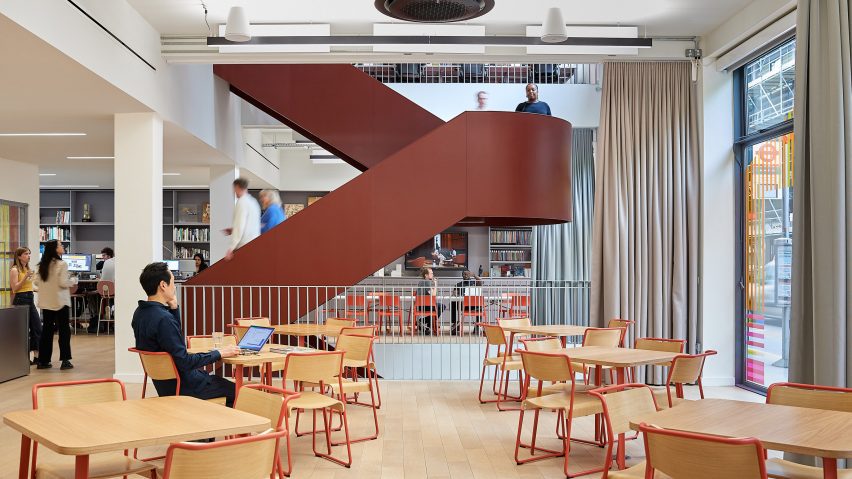
Hawkins\Brown converts former Vitra showroom into own street-front office
Architecture studio Hawkins\Brown has taken over a former furniture showroom, giving its staff a workspace with a shop window, a social kitchen and a Richard Woods-designed cabin.
The former Vitra showroom on Clerkenwell Road is now a three-level office for 250 of Hawkins\Brown's 350 staff. The new street-front address was designed to give the architects a workspace that facilitates more diverse ways of working and offers greater opportunities for social activities and events.
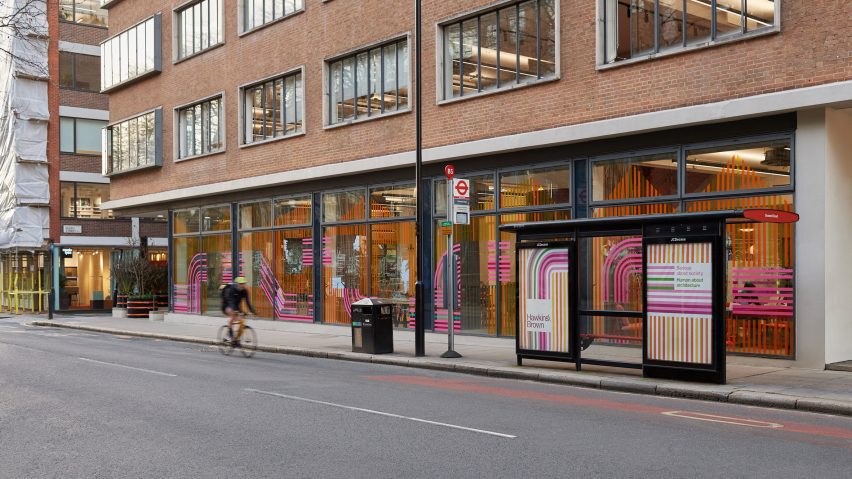
"Our vast shopfront means we are on display, presenting us with a new and exciting opportunity to show the world who we are and what we do," said Hawkins\Brown managing partner Hazel York.
"It's a place to connect with our clients, collaborators and the wider Clerkenwell community through a programme of talks and events, temporary exhibitions and art installations."
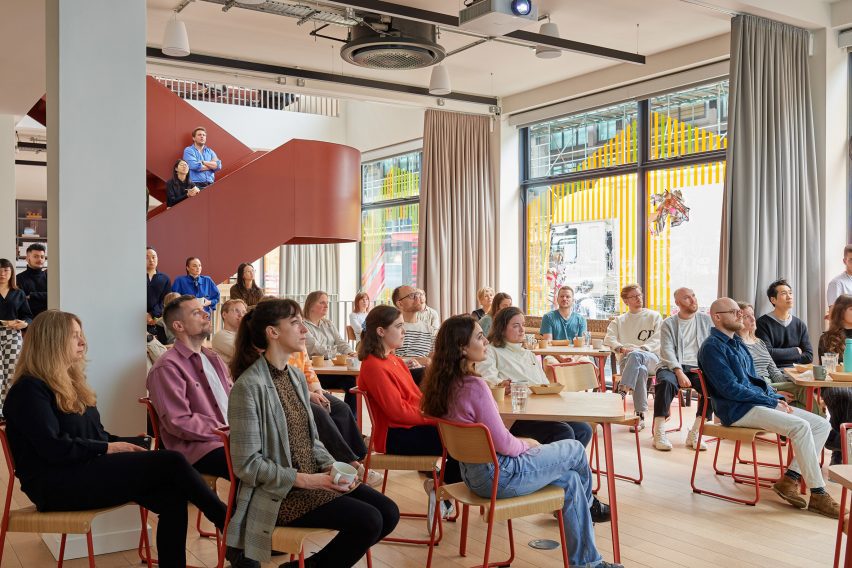
Central to this approach was turning the ground-floor space into a flexible "canteen" featuring a stainless-steel counter where staff meet for coffee and cafe-style furniture that can be easily moved around.
"Our ground floor canteen is our working experiment, our laboratory," said Hawkins\Brown's creative director David Bickle.
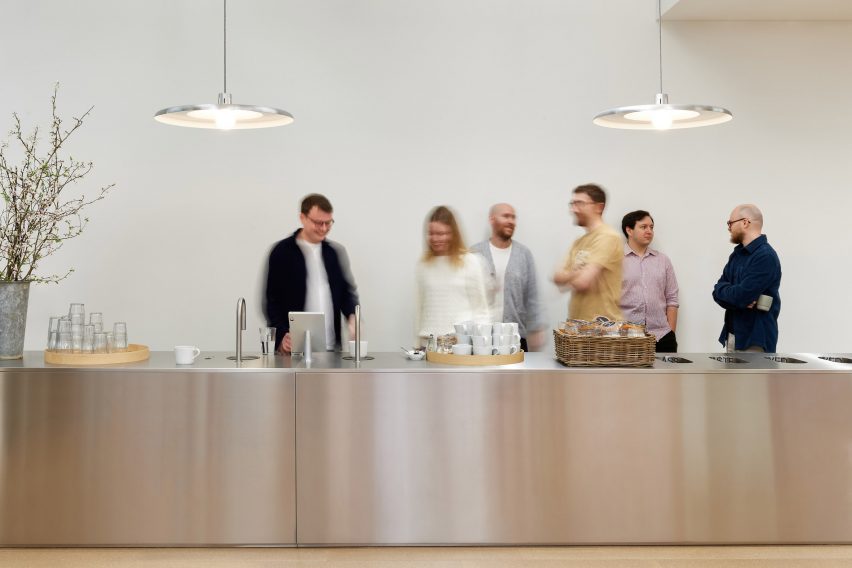
"It's a place where we can host talks and seminars, workshops, supper clubs and sunset yoga, and invite takeovers by like-minded organisations," he told Dezeen.
"We've purposely kept it unprogrammed, loose fit and unfinished, preferring to 'show not tell' what we do to the world outside."
A shed covered in the colourful cartoon-style prints of artist Richard Woods can be found on this floor, surrounded by plants.
Known as Hut, it offers staff a place to find isolation.
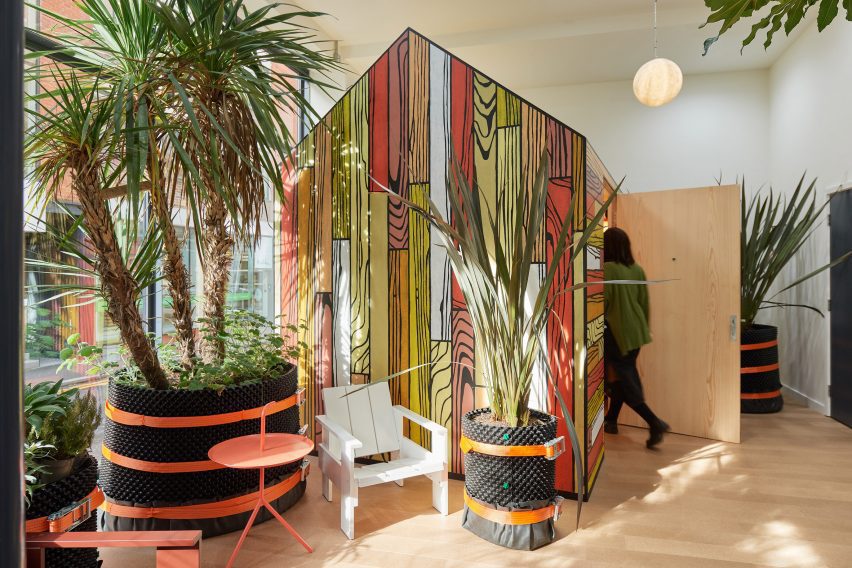
The idea was to create the feel of a building within a building, an approach that Hawkins\Brown previously explored on projects including the Gantry at Here East and the Here + Now offices.
"We recognised that many of us worked from sheds, home offices, lofts and kitchen tables during the Covid lockdown and that this form of isolation was important for certain concentrated creative tasks," stated Bickle.
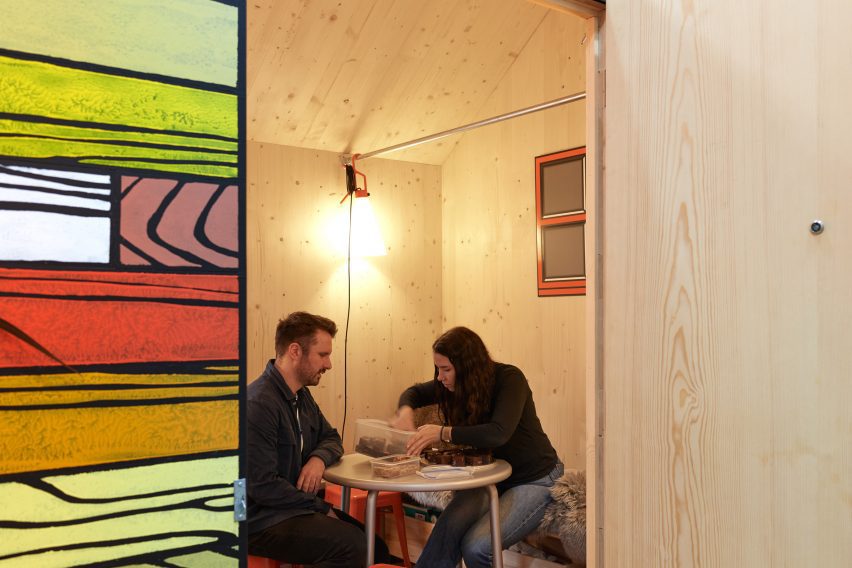
"We talked through our ideas with Richard; he was immediately taken with our thinking and open to creating something new," Bickle said.
"The closed form of Hut creates a talking point. Paradoxically we placed the most private space in the most public location but, through its design, we created a sanctuary from the rest of the studio and the world outside."
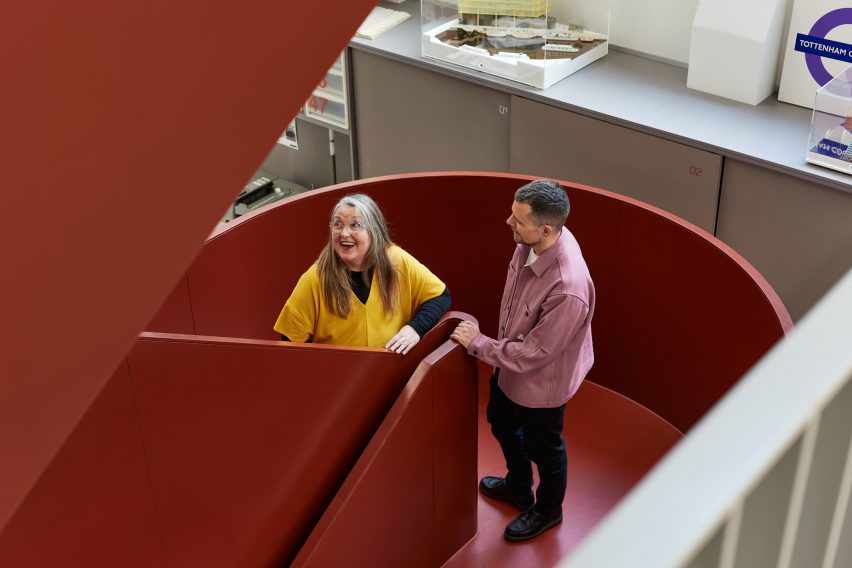
More art can be found on the glazed facade in the form of graphics designed by architect June Tong, the winning entry in an in-house competition.
Power-assisted acoustic curtains allow the space to be subdivided if necessary, while a newly painted red staircase encourages staff to stop and chat while moving between floors.
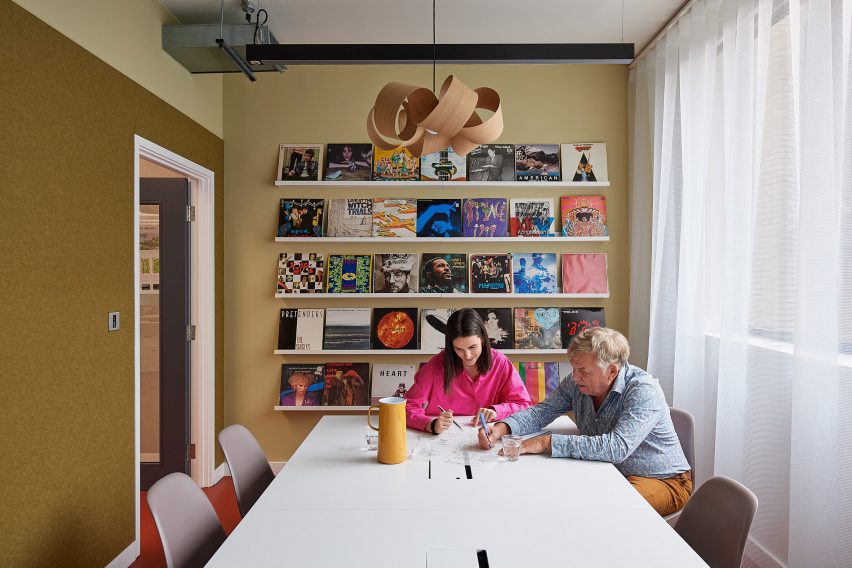
Meeting rooms can be found on all three levels. These include a pair of adjoining basement rooms affectionately known as Ray and Charles, which can be combined into one larger room called Eames.
These were named in tribute to former occupant Vitra, which produces furniture by the famed American architects.
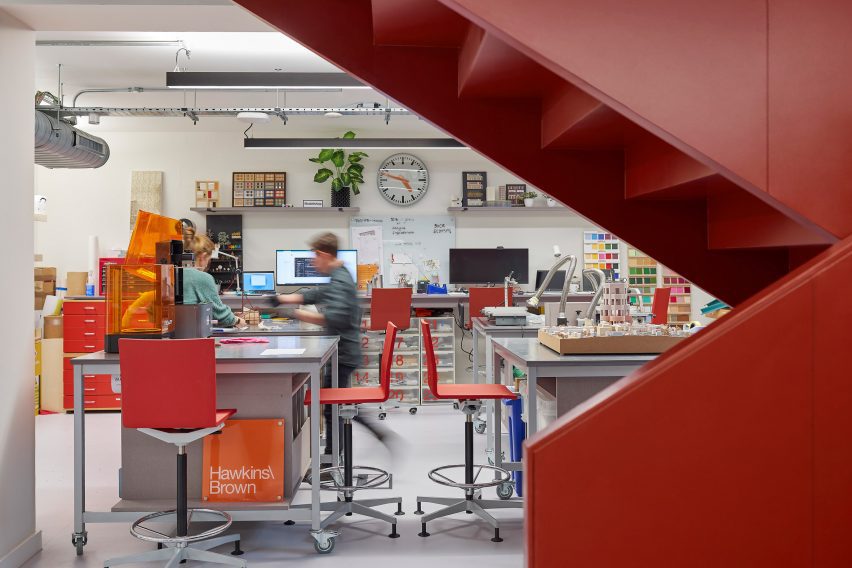
A modelmaking workshop is located in the basement but visible from above, while pin-up boards were integrated into sliding doors as well as mobile partitions.
York said the new office has shaped a more collaborative culture among staff. Amid the wider shift to hybrid working, she believes it has strengthened the firm's sense of community and collective identity.
"We knew having a shop window on a bustling street would be great but it has surpassed our expectations," she said.
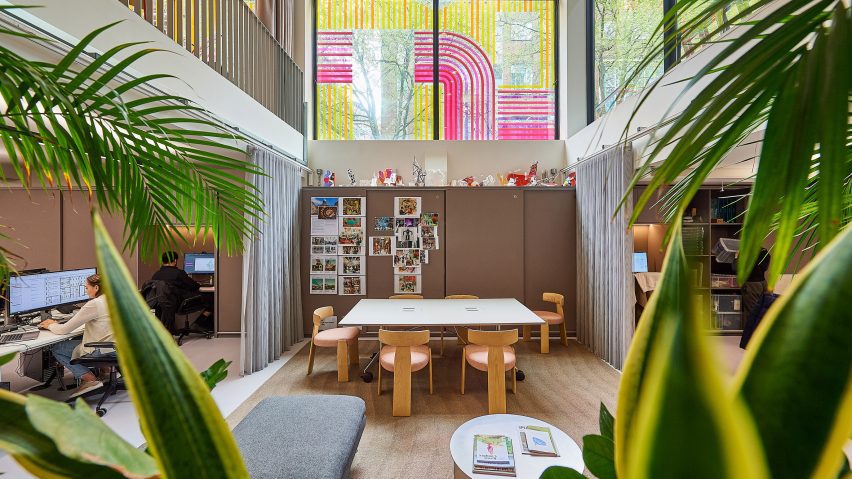
"Watching the world go by is a constant reminder of how our work shapes and is shaped by the city and communities we serve."
"Equally, we are very open about the work we do; everyone can see in. We draw on the windows, stick up work in progress and regularly wave at people at the bus stop!"
The photography is by Ruth Ward.